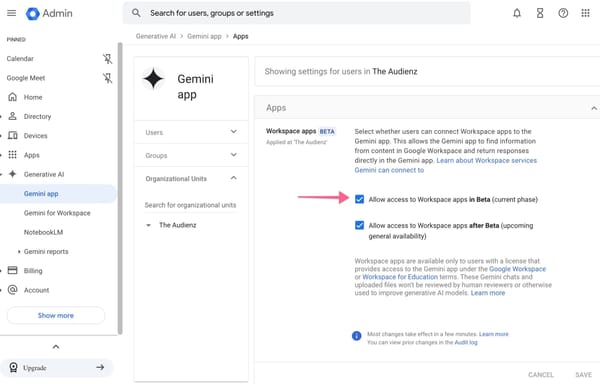YMYL Content: 7 SEO Tips to Implement Today

Even if you’re an SEO rookie, chances are you’d have come across the term E-E-A-T. It may just be the missing ingredient to make your YMYL content shine on Google.
First things first, here’s what these acronyms mean:
- E-E-A-T stands for "Experience", "Expertise", "Authoritativeness", and "Trustworthiness", and it aims at the capacity of an author to be considered an expert in a topic — it can help improve the quality and credibility of your project.
- YMYL: The meaning of this acronym is "Your Money or Your Life", and it refers to content that covers topics that can impact a person's future wellbeing (health, financial stability, safety, etc).
Google evaluates websites based on E-E-A-T signals, which are even more crucial for websites dispensing information that can impact readers' health or finances.
In this guide, we’ll explain E-E-A-T, why it matters in YMYL content, and strategies that you can start implementing today.
What Is E-E-A-T?
E-E-A-T represents an important framework in SEO and is an extension of the well-known E-A-T principle, with an added focus on “Experience.”
E-A-T (Expertise, Authoritativeness, and Trustworthiness) has already been an important part of Google’s quality rating guidelines for quite some time. In December 2022, “Experience” was introduced in the guidelines.
Here’s what it means for you as an SEO professional or a website owner: You must not only showcase your authority and knowledge in the subject but also demonstrate direct experience to improve your search engine rankings.
The addition of “Experience” signifies the value of personal anecdotes and first-hand experience to enhance your content’s credibility. With so much AI content casually floating around, it's even more important to incorporate E-E-A-T signals in your content.
Components of E-E-A-T
Here’s a closer look at each component of E-E-A-T and what it means:
Experience
Google prioritizes content created by people with relevant, first-hand life experience. Such content is more likely to have:
- Deeper understanding of the subject matter
- Valuable insights and advice
- Trustworthy information
Expertise and experience may sound like the same thing, but it’s not. Expertise is when an accredited financial advisor offers tips on investments and savings. Experience is when someone shares real-life investment and savings tips that worked for them.
Expertise
Google’s search quality raters also determine whether authors have topical expertise. The author should have the right credentials, qualifications, and knowledge to provide information that search engines deem valuable for their readers.
In the last 12 months, we have produced close to 500 YMYL articles. To ensure “expertise,” we allocate writers with appropriate credentials and knowledge to each project.
For example, for a client offering medical advice and information, we chose writers with medical degrees and experience.
Authoritativeness
Authoritativeness is the reputation of a writer or a website in their field. It’s about being recognized as a source of reliable information by consistently publishing high-quality, useful, and accurate content.
You can also build authoritativeness by getting citations from other reputable sites and publications.
Trustworthiness
Trustworthiness is the reliability and credibility of your content. Google considers this a crucial factor for determining the value of your site.
When it comes to scoring points for trustworthiness with Google, you’ll need to ensure that your content is error-free and fact-checked, have clear information about your business and your authors, and ensure your site is secure with HTTPS.
Why Is E-E-A-T Important for YMYL Sites?
E-E-A-T is important for all websites, but more so for YMYL sites because they share information and advice that can impact people’s well-being, health, and finances.
Let’s take an example. I’m a mom of a sick child, and I’m trying to decide whether I should take my kid to the ER or wait for an appointment with the pediatrician. Since this information can potentially be life-altering, Google applies the highest standards when evaluating websites dispensing this type of advice.
If you have a YMYL site that offers medical advice, personal safety content, trading, or investment advice, you’ll need to prove that your content is trustworthy. Why should Google, or your readers, trust you?
E-E-A-T guidelines can help you demonstrate that.
7 Tips To Implement E-E-A-T in YMYL Content
Now that we have the basics out of the way let’s talk about what you can start doing today to improve your YMYL website’s E-E-A-T profile.
Create High-Quality Content
There’s no getting around this. You can’t expect to get 100k visitors to your website consistently if the content you post isn’t high quality.
Over the years, Google has released many algorithm updates to ensure search results show websites with content that’s written for people, helpful to users, and original.
What does high-quality content mean? It means that your content should put your readers first. It should answer questions your readers have, provide information they’re looking for, and leave them satisfied.
Your work isn’t done once you hit publish. You also need to review your content regularly to ensure that it’s still helpful. Other than creating new content for our YMYL clients, we also regularly audit what’s already published and update/rewrite content to make sure all information is still current and helpful.
Here’s a quick example to show you how this works. I wrote an article for a client in the finance niche about the Supreme Court’s decision to block Biden’s student loan forgiveness program in July 2023. The article’s goal was to update the readers about what this decision means for them and what other alternatives they have if they’re struggling with student debt.
In April 2024, I rewrote the article to provide the latest updates on the topic. The updated article offered information about student loans that have already been forgiven recently, new debt relief measures announced by the Biden-Harris Administration, and other information that’s more current and helpful to readers today.
Include Author Bio
Author bios enhance authoritativeness and trustworthiness. Here’s what you should include in an author bio:
- Include a link to a detailed author bio with each article/blog post.
- Link to their personal website, LinkedIn, and other relevant social media profiles.
- The bio should include the author’s experience, qualifications, and expertise.
- Provide the author’s contact information so readers can engage with them.
- Showcase their previous work, awards, or recognitions they’ve received in the past.
Use Credible Sources
An easy way to establish credibility is by linking to official sources, research papers, and established experts in your industry.
This is especially important in YMYL SEO. When linking, you want to go straight to the original source. Link to official government websites or websites that are known for high-quality, reliable information.
Here’s an example. Take a look at this sources section for an article I wrote about how severance pay is taxed in the U.S. Sources include the IRS, the U.S. Department of Labor, and well-known websites in the personal finance niche like NerdWallet, Fidelity, and Investopedia.
Here’s another tip for you. Your YMYL content should be reviewed by subject matter experts to ensure all information you share is credible and factually accurate. The workflow at our agency includes three rounds of review: first review by an in-house editor, second review by the client, and third review by a subject matter expert.
Cluster topics
Topical clusters offer you a strategic, logical way to organize the content on your website. You can demonstrate topical authority and knowledge in your niche through a series of interlinked pages surrounding a core topic to enhance your website’s E-E-A-T.
Here’s how to create topical clusters:
- Identify core topics in your niche that are of interest to your readers.
- Develop in-depth content pieces around these topics (pillar content).
- Develop cluster pages, which are related content that answer specific questions about the core topic and link the pages to the pillar content.
- Interlink all related content to provide a seamless experience for your readers.
Build Brand Reputation
A solid reputation makes it easier to rank better on Google because it leads to better engagement and more high-quality backlinks. Here’s how you can build a brand reputation in the YMYL niche:
- Make sure your brand messaging is consistent across platforms. Consistency builds recognition, reliability, and trust.
- Participate in community initiatives and events to boost your visibility.
- Share case studies or customer success stories on social media.
- Engage with your audience regularly through blog comments and social media.
- Make sure your responses are helpful and positive.
- Ask customers to leave reviews.
- Be open to customer feedback and respond professionally to negative comments.
Build Quality Backlinks
Backlinks from high-quality sources are a strong authority signal to search engines. There are a few ways you can achieve this:
- Collaborate with authoritative individuals, experts, or websites to create content.
- Write guest posts for well-known websites in your niche.
- Offer resources, such as studies, whitepapers, tools, and guides that other websites will want to link to.
- Monitor backlink quality regularly to ensure they’re relevant and helpful.
Remove Or Improve Outdated Content
Do a full audit of your website or have a professional do it for you. Identify content that isn’t useful to your readers anymore and prune it. This is one quick and easy way to improve your E-E-A-T.
Here’s the difficult part: deciding whether you should improve content or just remove it. If the content is so terrible that it’s not worth your time or resources, or if it's about a topic that’s no longer useful to your readers, just remove it.
If it’s older content that requires a little TLC, improve it. Here are a few quick ways I try to improve a piece’s E-E-A-T:
- Have a writer with authority write the content.
- Add data/information from credible sources.
- Update any old data in the content (recent data no more than a year old).
- Get quotes from an expert.
- De-optimize the content to make it more readable and less SEO-focused.
- Improve the title, meta description, and article structure.
E-E-A-T Helps Create a Satisfying User Experience
Experience, Expertise, Authoritativeness, and Trustworthiness aren’t ranking signals, but they do have a huge impact on your page’s ranking. For YMYL websites, it's especially important to incorporate E-E-A-T parameters in their content since they have a direct impact on people’s finances and health.
Let’s forget about search engine rankings for a minute. When you follow Google’s E-E-A-T guidelines, you’re automatically creating high-quality, trustworthy, and useful content that benefits your audience.
Actually, pair your SEO contet with email, using a good email marketing tool to build your brand, so that people can remember you over time and start looking for you, instead of your next competitor.
In short, anything that’s helpful for your users will help you rank well on search engines and, in turn, get you the traffic you really deserve..




